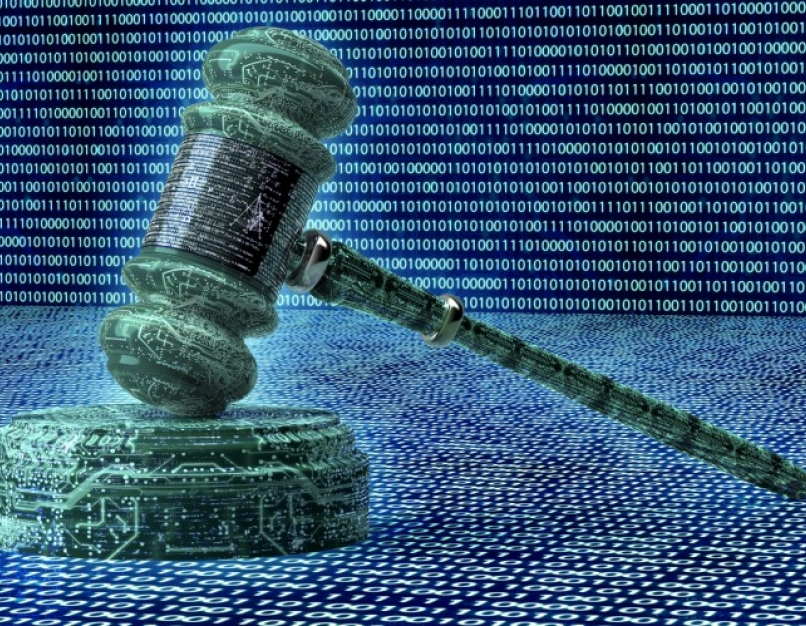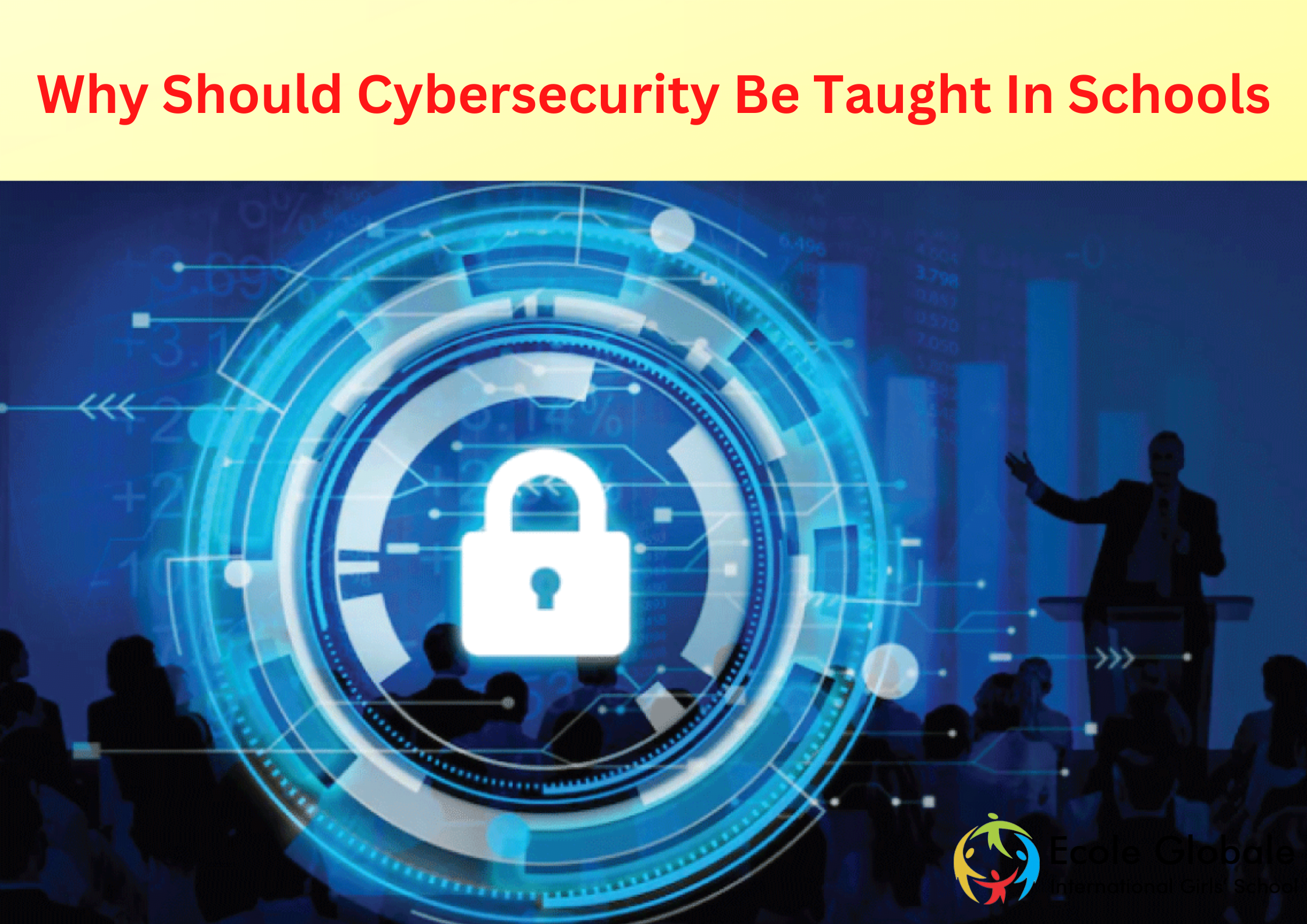While cybersecurity concerns are an everyday, nagging thought in many people’s minds, they may be unaware of the need for additional training. Cybersecurity is a topic that students are not taught in school. As per research conducted by Schools in Dehradun, it is becoming increasingly important for students to learn about cybersecurity to ensure their financial, personal and mental well-being.
If this sounds like you, you might wonder: why is cybersecurity so critical to businesses and individuals? How should we best prepare the next generation for managing and defending against dangerous cyber threats?
Also read : How catfishing and cyberbullying affects people
Cybersecurity And Cybercrimes

Cybersecurity is the practice of protecting networks, systems, and data from unauthorised access or attack. It also refers to the collection of tools and practices used to protect those networks, systems, and data.
A cyberattack is any attempt to breach computer security by gaining access to a computer system or network without authorisation or having been granted access.
Cybercrime is any crime that involves a computer, the internet, or information technology. It can include hacking into computers, stealing personal information, and other illegal activities related to technology.
Cyber Laws Every Indian Should Be Aware Of

The Information Technology Act of 2000 was put in place by the Indian government to control actions that infringe on an Internet user’s rights. Here are some of its components that aim to protect cyberspace while also empowering Internet users.
Section 65 – Tampering with computer Source Documents
Anyone who willfully conceals or destroys, or modifies any computer source code (such as programmes, computer commands, design, and layout) that must be kept up to date by law is guilty of an offence, and they could be sentenced to three years in prison, a fine of two lakh rupees, or both.
Section 66 – Using the password of another person
If a person fraudulently uses the password, digital signature or other unique identification of another person, he/she can face imprisonment for up to 3 years or/and a fine of 1 Lakh INR.
Section 66D – Cheating Using computer resource
A person who commits adultery via a computer or a communication device faces a maximum sentence of three years in prison or a fine of one lakh Indian rupees.
Section 66E – Publishing Private Images of Others
A person can receive a punishment of up to 2 lakh INR or three years in prison if they take, send, or publish pictures of another person’s private parts without that person’s knowledge or consent.
Section 66F – Acts of cyber Terrorism
If someone attempts to breach or access a computer resource without authorisation to endanger the unity, integrity, security, or sovereignty of the country, they risk receiving a life sentence. This offence is not subject to bail.
Section 67 – Publishing Child Porn or predating children online
If someone photographs, publishes, or sends out a video of a minor engaging in sexual activity, or coerces anyone under the age of 18 into having sex, they might spend up to seven years in prison, pay a fine of up to ten lakh rupees or both.
Section 69 – Govt.’s Power to block websites
Any information generated, transferred, received, or stored in any computer resource may be intercepted, monitored, or decrypted by the government if it deems it necessary to protect India’s sovereignty and integrity. The use of the power is contingent upon following the process. The central government is also permitted to restrict public access to any material under section 69A.
Section 43A – Data protection at the Corporate level
A body corporate is responsible for compensating the victim for losses or gains that were brought about by negligence in the implementation of appropriate security standards.
Poor Cyber Hygiene Can Put A Student’s Finances, Identity And Mental Health At Risk.

Children are exposed to cyberbullying and sexual predators on social media platforms. There is also a lack of awareness regarding the dangers of sharing personal information online. Students are not taught how to protect themselves from these dangers.
By teaching students about cybersecurity in schools, they will be able to make informed decisions about how they use technology and what precautions they need to take when using it.
To better prepare students for what they may encounter online as adults, we need more educators who are qualified in this field. By offering classes on cyber security during high school or college years, students will have a better understanding of how their personal information can be protected while using technology devices such as smartphones and computers.
Schools Are Targets Of Cybercrime
Schools are a common target for cybercrimes. One reason is that many schools have insufficient security measures to protect their data, hardware, and software. This can leave them vulnerable to attacks from malicious hackers.
Another reason why schools are targeted by cybercriminals is because of their location in remote places.
These small communities can be easy targets for attackers who wish to cause harm to their local communities.
Cybercrime can also affect schools because they store sensitive information about students and staff members on their computers and networks. This type of information could be used by criminals seeking to steal identities or commit other crimes against people who use the school’s resources regularly.
Cybersecurity Attacks Are Increase Alarmingly

According to a 2021 IBM Security X-Force research, a 23% increase in cybersecurity incidents required the team’s assistance. The first half (H1) of 2022 alone saw 6.74 million cyber incidents in India, according to the Indian Computer Emergency Response Team (CERT-In).
As a result, it’s become more important than ever to teach children about cybersecurity and how to protect themselves and others.
Protecting yourself online is just as crucial as knowing how to take care of your health and safety.
Students should have the opportunity to learn about cybersecurity through their school curriculum.
Future Careers Will Require Knowledge Of Cybersecurity

The consequences of a cyber attack can be devastating and life-changing. Cybercriminals are using sophisticated tools and techniques to hack into our data and personal information, putting us at risk for identity theft, financial loss, and even physical harm. By teaching students about cybersecurity, we can help them recognise the signs of a cyber attack and how to prevent it from happening in the first place.
In the modern world, cybersecurity is more important than ever.
Cybersecurity is a growing industry that requires extensive knowledge of new technologies and trends. In the past, computer science was not taught in schools, but now it is becoming increasingly important for students to know how computers work and how one uses them safely.
Students who study cybersecurity will have access to a wide range of careers in both government and private sector jobs.
While it’s true that many cybersecurity jobs are found within large corporations or in government agencies, there are also plenty of opportunities for people who want to work on their own or with small groups.
The skills needed for these jobs are similar regardless of whether you’re working with a huge corporation or owning your own business:
- knowing how to protect yourself against attacks, building secure systems from scratch,
- keeping up with new developments in technology
so that you can stay ahead of the competition (or at least know what threats are coming).
Cybersecurity-Related Jobs Are Well-Paying

The Indian government has made cybersecurity a priority. To become more competitive in the global economy and attract foreign investment, Indian leaders want to ensure that they have enough skilled workers available to meet industry demand.
The former has created a boom in job opportunities that no one can afford to ignore. If you’re interested in pursuing a career in cybersecurity, now is a perfect time!
Advanced cybersecurity experts work in a “seller’s market” where there is no unemployment, employers are fighting for the best candidates, and senior-level positions pay up to $400,000 and more.
According to Paul Smith, vice president of PEAK Technical Staffing, who was speaking to CSOonline.com, “The ideal candidate can command over $400,000 at the highest levels.” In addition to cybersecurity-specific jobs, security engineers and architects are also in high demand and make an average of $99,000 annually
Following are some of the highest paying jobs after completing any course related to cyber security:
- Cybersecurity Analyst.
- Information Security Manager.
- Cybersecurity Engineer.
- Security Architect.
- Application Security Engineer.
- Network Security Engineer.
- Ethical Hackers.
- Chief Information Security Officer (CISO)
Teaching Students About Cybersecurity Can Help Protect The Wider Community Too

In the age of social media, it’s not just students at risk of cyber threats. The whole community is affected.
When we learn of the most recent data breach or leak, we are puzzled as to how it could have occurred. In reality, suitable training and awareness can prevent many breaches and threats.
Many people must understand that cybersecurity is a worldwide problem and that teaching pupils about it can help them safeguard their communities and selves.
Cybersecurity encompasses everything from hacking to malware to phishing attacks. And while it may seem overwhelming, there are some easy ways you can teach your students about cybersecurity in an engaging way right now!
That’s why teaching kids about cybersecurity is so important; they are the ones who will be able to protect the broader community from online threats.
And, if you’re thinking that you don’t know enough about cybersecurity yourself to teach your kids about it, don’t worry! Plenty of resources are available for learning more about keeping yourself safe online—and teaching your kids how not to get caught up in scams or other dangerous situations.
Conclusion
Cybersecurity is something one should read very well. Those who venture online ought to be aware of the former, and take precautions to defend themselves. Some go so far as to train to become cybersecurity professionals. Knowing when you’re over your head is just as crucial as knowing how to keep yourself safe online.
For any queries related to parenting, schooling, or any student-related tips, click here to check out our latest blogs







